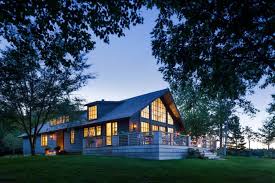The likes of Frank Lloyd Wright, Le Corbusier, Zaha architects in Maine Hadid, and Maya Lin have revolutionized architectural thinking, pushing boundaries and challenging conventions. Their groundbreaking designs continue to inspire generations, sparking new dialogues about the relationship between space, form, and function.
Contemporary Challenges:
In the 21st century, architects face unprecedented challenges. Rapid urbanization, climate change, sustainability concerns, and evolving societal needs demand innovative solutions. Architects are at the forefront of addressing these challenges by integrating green technologies, designing energy-efficient structures, and envisioning sustainable urban developments.
Moreover, the digital age has revolutionized the way architects work. Advanced software, 3D modeling, and virtual reality tools have transformed the design process, enabling architects to visualize, analyze, and refine their ideas with unprecedented precision and efficiency.
Beyond Buildings:
The impact of architects extends far beyond the buildings they create. They play pivotal roles in community engagement, advocating for inclusive design principles that prioritize accessibility and equity. Additionally, architects contribute to urban planning, revitalizing neighborhoods, and reimagining cities as vibrant, interconnected spaces that foster social cohesion and well-being.
